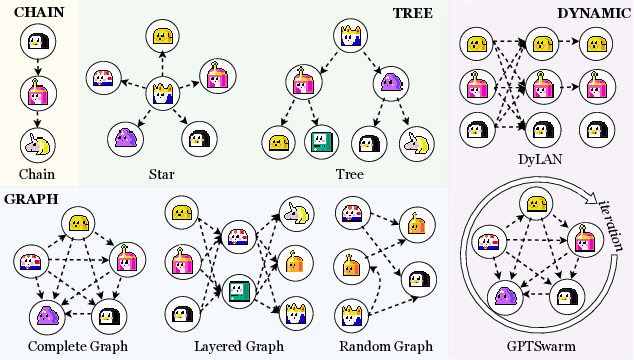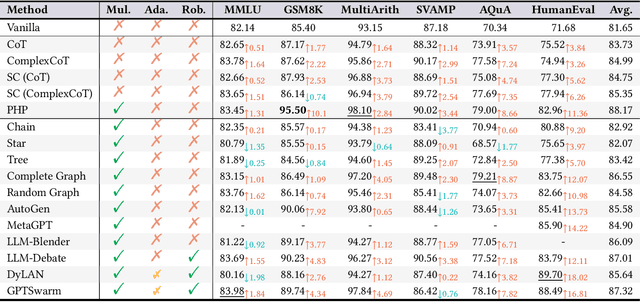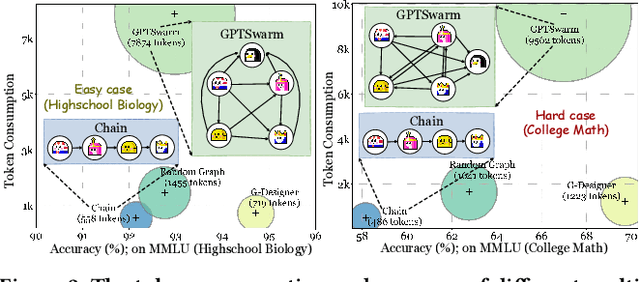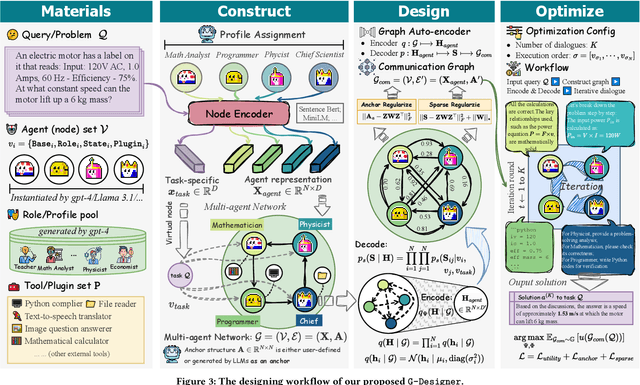G-Designer: Architecting Multi-agent Communication Topologies via Graph Neural Networks
Paper and Code
Oct 15, 2024



Recent advancements in large language model (LLM)-based agents have demonstrated that collective intelligence can significantly surpass the capabilities of individual agents, primarily due to well-crafted inter-agent communication topologies. Despite the diverse and high-performing designs available, practitioners often face confusion when selecting the most effective pipeline for their specific task: \textit{Which topology is the best choice for my task, avoiding unnecessary communication token overhead while ensuring high-quality solution?} In response to this dilemma, we introduce G-Designer, an adaptive, efficient, and robust solution for multi-agent deployment, which dynamically designs task-aware, customized communication topologies. Specifically, G-Designer models the multi-agent system as a multi-agent network, leveraging a variational graph auto-encoder to encode both the nodes (agents) and a task-specific virtual node, and decodes a task-adaptive and high-performing communication topology. Extensive experiments on six benchmarks showcase that G-Designer is: \textbf{(1) high-performing}, achieving superior results on MMLU with accuracy at $84.50\%$ and on HumanEval with pass@1 at $89.90\%$; \textbf{(2) task-adaptive}, architecting communication protocols tailored to task difficulty, reducing token consumption by up to $95.33\%$ on HumanEval; and \textbf{(3) adversarially robust}, defending against agent adversarial attacks with merely $0.3\%$ accuracy drop.
 Add to Chrome
Add to Chrome Add to Firefox
Add to Firefox Add to Edge
Add to Edge